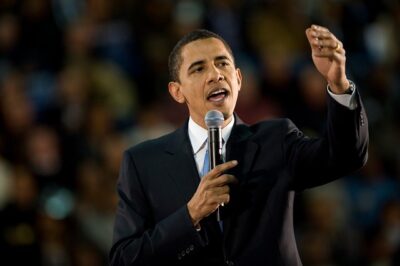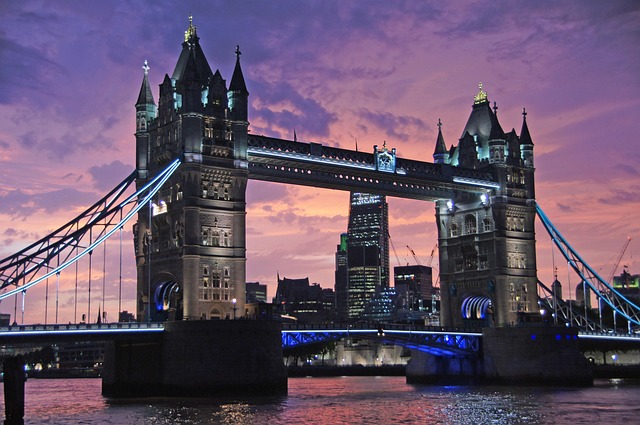 For a long time, the thought recurred: ‘When Americans elect a black president, then true equality will have been achieved.’ This phrase almost became a metaphor for a distant vision, something that, though possible, belonged to a future far beyond the horizon. But then Barack Obama emerged on the political scene, with his message of change in a climate of war and turmoil – a zeitgeist characterised by his predecessor George W. Bush. Americans were exhausted after years of US intervention in the Middle East; they longed for stability, security and new leadership.
For a long time, the thought recurred: ‘When Americans elect a black president, then true equality will have been achieved.’ This phrase almost became a metaphor for a distant vision, something that, though possible, belonged to a future far beyond the horizon. But then Barack Obama emerged on the political scene, with his message of change in a climate of war and turmoil – a zeitgeist characterised by his predecessor George W. Bush. Americans were exhausted after years of US intervention in the Middle East; they longed for stability, security and new leadership.
Barack Obama won the 2008 presidential election and served two terms, from 2009 to 2017, for eight long years. Americans got their first black president. And nothing special happened. The wars in Afghanistan and Iraq continued, and a new war was started in Libya, a country that was left divided and in disarray until this day. Obama also tried his hand at a universal health insurance system (Obamacare) that never really took off, the initiative was poorly planned and ineffective.
There was no change.
The unfulfilled expectations created a kind of mental knot in the American soul, partly among the black population who believed that a black president would be the solution to everything. But also among whites, who perhaps hoped for a greater sense of equality, brotherhood and sisterhood.
These expectations had their roots in the post-war ideology of entitlement. The political foundations of the West after 1945 can be summarised in a few simple formulas: Western democracy, equality and human dignity, and Pax Americana.
In contrast to the fascist and communist ideologies that had ravaged Europe, the aim was to create an ideological foundation that was more humane and just. And after the Second World War, ideas about equalily in dignity and rights were spread via the UN’s Human Rights Treaty, as well as a general idea of justice that included class, gender and race. And the unifying force was the United States, one of the victorious powers, which soon became a superpower alongside the Soviet Union.
In addition, a strong individualistic approach to life was cultivated: now you had to sort yourself out, everyone had equal rights and opportunities, we were blank pages in the great book of life. This eventually came to clash with the idea of everyone’s equality. If everyone is equal, how can anyone be completely unique?
Of course, there are a lot of different interpretations of what is actually meant by ‘everyone’s equal value’, we don’t need to go into details, but it is really about an abstract human value that everyone possesses. Everyone has human dignity, even murderers and rapists. And this is where it starts to crack. Many people realise, after a moment’s reflection, that they don’t think everyone is equal, regardless of whether human dignity is an abstract or realistic concept.
Under Obama, we probably reached the peak of the post-war ideology of entitlement. But people also realised its flaws and emptiness.
How can we pursue justice forever, when at some point justice must be achieved? And when it is achieved, people start to reinterpret the concept, seeking ever stranger client groups for whom they want to create justice. It started with equal rights for rich and poor – and ended with quotas, special legislation and rights for (for example) transgender people.
We recognise that transgender people already are included in human rights (after all they are human), but there is a desire to start the fight all over again. And now universal acceptance is sought, for you and me to accept things on a personal level. In other words, not just legal rights, but demands for acceptance from all individuals.
This is where it starts to get scary, when you want to get into people’s souls. Of course we can think and feel whatever we want about people, races, classes – as long as we don’t resort to threats, violence, etc. You can’t control people’s thoughts or opinions. And, yes, some people have bad ideas. We have to learn to live with that.
You can see where I’m going. This period saw the strengthening of what came to be known as ‘woke’ thinking.
Obama’s presidency also saw a more widespread scepticism towards power. People asked why Obama continued the wars when he had promised peace and change? Who was really in charge? Why was the policy the same as before, despite the election of a peaceful black man as president?
Slowly, groups emerged that, consciously or unconsciously, began to distance themselves from the ideology of entitlement. They could be libertarians, nationalists, populists, Christians – but mostly ordinary people who had never really been fully on board with the equality of all, and the ever-expanding concept of various rights.
The elite disliked this, and their knee-jerk reaction was to call the deviants racists, fascists, phobics, etc. etc. And in the beginning the tactic worked, they managed to label the critics and bully them back to their hiding places. But it didn’t work in the long run, because the ideology of entitlement was never meant to be followed literally, it had its inherent flaws, and in many ways went against human nature. Moreover, it had outlived its usefulness. We are no longer in the post-war period, most of us regard the war as a distant historical event, and those who were there are dead.
And here we are now. Many people still like the ideology of entitlement, they don’t really understand that it has degenerated, even if something is grating and uncomfortable. It is very difficult to leave behind an accepted truth and seek something new.







